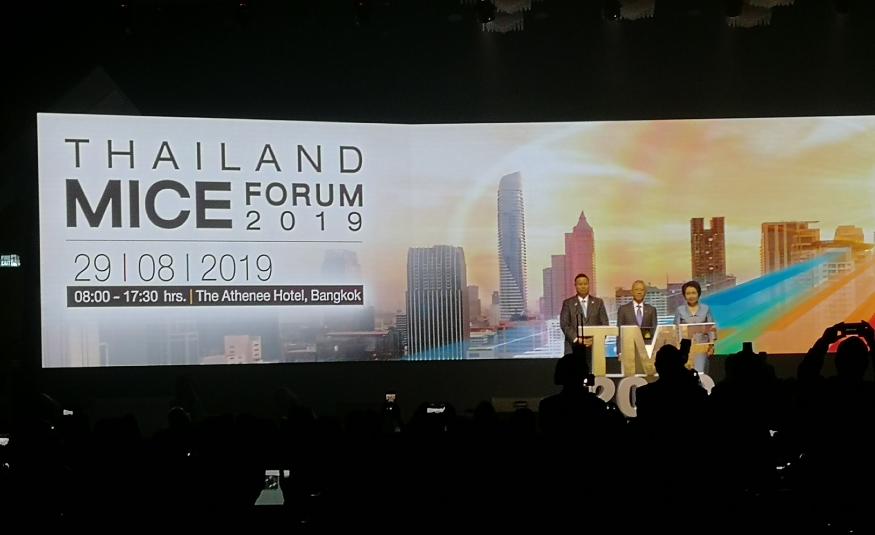Stuart Wood reports from the Thailand MICE Forum in Bangkok.
“The US may be shooting itself in the foot with its trade war against China,” said UFI CEO Kai Hattendorf, speaking at the Thailand MICE Forum. “I expect this will open up more business opportunities to the East.”
For the Thai eventprofs who were in attendance at Bangkok’s The Athenee Hotel, the forecast looked good. Hattendorf ran through some figures from UFI’s latest Global Barometer research, and informed us that Thailand sold more exhibition space in 2018 than the entire surface of Australia. However, the good news came with a warning. He pointed out that, in Thailand, the research found organisers’ key business issue was “too much regulation” – something the Government may want to take note of.
Thailand’s Minister of Tourism and Sports, Phiphat Ratchakitprakar, will certainly have been listening. He delivered the opening remarks at the event, before giving way to ICCA CEO Senthil Gopinath and SITE President Philip Eidsvold, who joined Hattendorf in providing an update from their respective associations.
The MICE Forum provided a platform for Hattendorf to discuss UFI’s latest research – which you can read more about in his regular EW column, found on page 12. But it also provided a platform to discuss the enduring power of face to face events, and how they have proven resilient in the face of the challenges posed by digital. “Digital is everywhere, but not everything,” he said. “Many in our industry used to think events would die a thousand slow deaths to digitisation, but this has already proven not to be the case. In a digital world, we need physical connections more than ever.”
A society without language barriers
Hattendorf’s assertion that ‘digital is everywhere’ seemed fitting as the final speaker of the Forum took to the stage. Yumiko Iwata, who is in charge of smart hospitality for the Tokyo 2020 Olympics, provided a fascinating update on some of the high-tech initiatives Japan is putting in place for next summer.
These included smart translation technology aimed at creating “a society without language barriers”, as well as big data analytics and sensors within event venues. Iwata outlined how cameras will map the showfloor within these spaces, and can automatically allocate event staff as needed. She also demonstrated plans to install augmented reality viewing tables in bars and cafes, which will add an extra dimension to broadcasts of the games.
Many of these future-facing technologies have found a home in Thailand, which is aiming its exhibition market towards smart industries such as automotive, robotics and biotechnology. The country can continue to look towards the future – the UFI Congress also arrives in Bangkok from 6-9 November.





